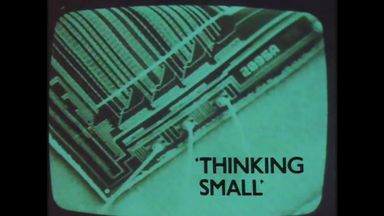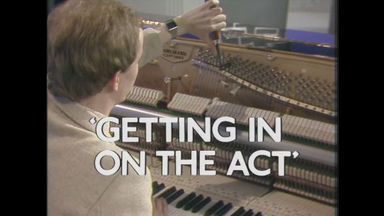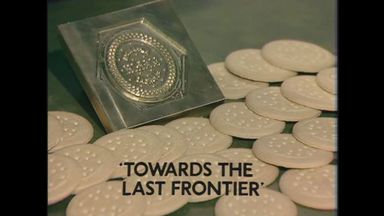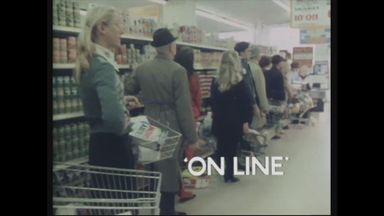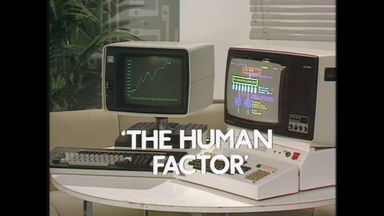Managing the Micro
2. Getting in on the Act
Clips from this programme
How a computer program could be devised to make an automatic piano tuning machine. Brian Redhead discusses the practicalities of prototyping such an idea with Bill Davis of Brighton Technical College
Duration: 04:26Two new low cost consumer products demonstrate the potential for entrepreneurs: a bicycle computer monitor and a sonic tape measure.
Duration: 02:31Computer control in a greenhouse shows how new technology can improve crop yields and save energy by sensing changes in environmental conditions and controlling windows and heating.
Duration: 05:28How the government MAP scheme helped a small engineering company develop measuring devices now being used by British Rail in its tyre replacement workshops
Duration: 04:54Geoff Vincent explains how EPROMS (erasable programmable read only memory chips) makes small scale silicon chip production much more affordable for low volume devices.
Duration: 02:44While many British firms struggle to embrace new technology, a company making electronic timeclocks is a rare success story
Duration: 02:59Managing the Micro
1. Thinking Small
First broadcast: 17th May 1981
Duration 24:46
BRIAN REDHEAD examines some of the implications of the new technological revolution for people in industry today. 1: Thinking Small: 'Software control' is said to be the key to the importance of 'the micro'. But what does that mean? And how is microelectronics helping small companies to stay competitive at a difficult time? Film editor M. A. C. ADAMS Producer DAVID ALLEN
2. Getting in on the Act
First broadcast: 24th May 1981
Duration 24:23
BRIAN REDHEAD examines some of the implications of the new technological revolution in industry. 2:Getting in on the Act: It is said that companies must 'think micro' because if they don't others will. But how can a micro be introduced into a new product? And how much risk is there? An electronic piano tuner, a greenhouse controller, a tape measure and a digital read-out for machine tools help show what is involved. Film editor U. A. C. ADAMS Producer DAVID ALLEN
Now playing
3. Towards the Last Frontier
First broadcast: 31st May 1981
Duration 24:35
BRIAN REDHEAD examines some of the implications of the new technological revolution for people in industry today.3: Towards the Last Frontier: Britain's industrial survival may depend on the readiness of companies to adopt flexible, computer-based manfacturing methods. But flexibility is not just a matter of equipment. It's also a question of attitudes and the ability to come to terms with the human effects of change. Director: DAVID SCOTT COWAN Producer: DAVID ALLEN
4. On Line
First broadcast: 7th June 1981
Duration 24:30
BRIAN REDHEAD examines some of the implications of the new technological revolution for people in industry today. 4: On Line: Laser supermarket check-outs, new time clocks at British Leyland, and Viewdata terminals in the local garage are only the tips of a number of electronic icebergs-networks of information links which are beginning, for good or ill, to have a far-reaching effect on the high street and on white-collar jobs in industry. Director DAVID SCOTT COWAN Producer DAVID ALLEN
5. The Human Factor
First broadcast: 14th June 1981
Duration 24:27
BRIAN REDHEAD examines some of the implications of the new technological revolution. 5: The Human Factor: The office is ripe for major changes and there have already been disputes over the introduction of new equipment such as word processors. How do people react to the micro? Is the spread of the new technology inevitable? Director DAVID SCOTT COWAN Producer DAVID ALLEN








